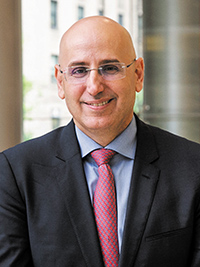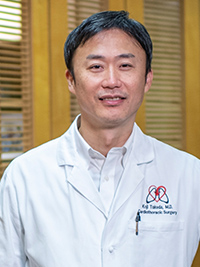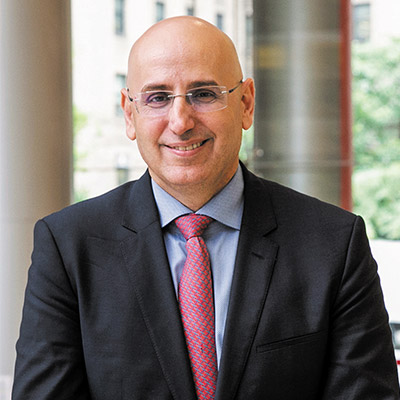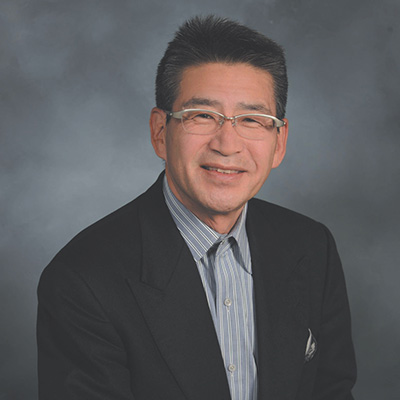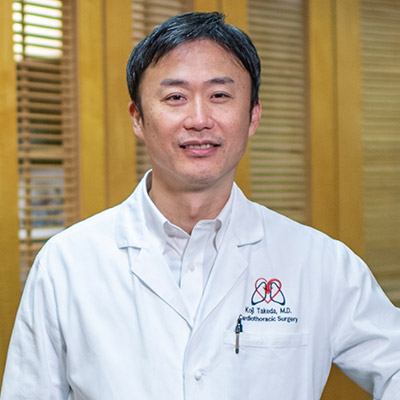In August 2018, the FDA approved the HeartMate 3™ left ventricular assist device (LVAD) as a destination therapy for patients with advanced heart failure who are not eligible for transplant. The HeartMate 3 LVAD had been approved as a bridge to transplant the year before. And now, new data released in August 2022 from the extended-phase MOMENTUM 3 study has demonstrated – for the first time – that a heart pump can extend survival to five years and beyond for patients with advanced heart failure.
In August 2018, the FDA approved the HeartMate 3™ left ventricular assist device (LVAD) as a destination therapy for patients with advanced heart failure who are not eligible for transplant. The HeartMate 3 LVAD had been approved as a bridge to transplant the year before. And now, new data released in August 2022 from the extended-phase MOMENTUM 3 study has demonstrated – for the first time – that a heart pump can extend survival to five years and beyond for patients with advanced heart failure.
Dr. Nir Uriel
According to prior studies, patients with advanced heart failure who did not receive an LVAD or undergo a heart transplant had a median life expectancy of less than two years. “In the past, these patients had few options beyond heart transplant, but this newest study shows that is no longer the case,” says Nir Uriel, MD, MSc, Director of Heart Failure, Heart Transplantation and Mechanical Support at NewYork-Presbyterian and National Co-Principal Investigator of the study. Dr. Uriel is also Professor of Medicine at Columbia and Adjunct Professor of Medicine at Weill Cornell Medicine. “While LVAD therapy has developed over the past few years as both a destination therapy and bridge to transplant when patients could no longer be managed medically, the long-term use of these devices had not yet been studied.”
Results of the five-year follow-up observational study were presented in a late-breaking session at the August 2022 European Society of Cardiology Congress in Barcelona, Spain, and published in the September 8, 2022, online issue of JAMA.
The challenge has been that we did not know the long-term survival rates for patients on heart pumps. With the results of the latest MOMENTUM trial, we can provide our patients with a meaningful therapeutic option that can extend their lives.
— Dr. Nir Uriel
MOMENTUM 3 involved more than 1,000 patients across 69 U.S. enrolling sites and is the world’s largest randomized clinical trial to assess outcomes in people receiving a left ventricular assist device (LVAD) to treat advanced heart failure. The pivotal investigational device trial compared HeartMate 3, which features a magnetically levitated motor that creates a centrifugal flow frictionless pump, with HeartMate II, which is powered through axial flow that creates friction. The trial showed that the centrifugal-flow LVAD was superior to the axial-flow pump with respect to survival to transplant, recovery, or LVAD support free of debilitating stroke or reoperation to replace the pump at 2 years. Based on this trial, the Food and Drug Administration approved the centrifugal-flow pump as a destination therapy in advanced heart failure in 2018, conditional on an extended evaluation to 5 years of follow-up among those still receiving LVAD support in the trial.
In the extended-phase study of MOMENTUM 3, an additional 295 patients were enrolled between June 2019 and April 2021, with 5-year follow-up analysis completed on a total of 477 patients in September 2021. The study focused on 10 end points evaluated at 5 years for both the centrifugal-flow and axial-flow pump groups, including the original composite end point of survival to transplant, recovery, or LVAD support absent of debilitating stroke or reoperation to replace the pump but extended to 5 years after the implant. This study demonstrated that in patients with advanced heart failure who received the HeartMate 3:
- Survival to transplant, recovery, or LVAD support free of debilitating stroke or reoperation to replace the pump in the centrifugal-flow was 54.0 percent compared to 29.7 percent in the axial-flow group.
- Patients in the HeartMate 3 cohort had an improved survival rate of 58 percent as compared to 44 percent of patients in the HeartMate II cohort.
- Serious adverse events of stroke, bleeding, and pump thrombosis were less frequent in the centrifugal-flow pump group.
- At the completion of the 5-year follow-up, 141 patients in the centrifugal-flow HeartMate 3 group and 85 patients in the axial-flow HeartMate II group remained receiving LVAD support.
Dr. Yoshifumi Naka
“NewYork-Presbyterian heart surgeons and cardiologists were among the first nationwide to offer patients access to HeartMate 3 and had one of the largest patient enrollments,” says Yoshifumi Naka, MD, PhD, Surgical Director of Heart Failure, Heart Transplant, and Mechanical Circulatory Support Programs at NewYork-Presbyterian and Professor of Cardiothoracic Surgery at Weill Cornell Medicine.
The latest data also demonstrated that the five-year survival for HeartMate 3 patients – nearly 60 percent – approaches what we would expect for the five-year survival rates of heart transplant recipients who have a similar risk profile.
— Dr. Yoshifumi Naka
“The HeartMate 3 pump proved to be superior to previous LVADs as it eliminates the risk of pump thrombosis and dramatically reduces the risk of stroke,” continues Dr. Naka. “The latest data also demonstrated that the five-year survival for HeartMate 3 patients – nearly 60 percent – is approaching what we would expect for the five-year survival rates of heart transplant recipients who have a similar risk profile. This is a great outcome for patients with advanced heart failure.”
Patterns and Predictors of Hospitalizations: More Reasons for Optimism
Dr. Koji Takeda
In the July 2022 issue of JACC: Heart Failure, Dr. Uriel and Koji Takeda, MD, Surgical Director of Heart Transplant and Mechanical Circulatory Support at NewYork-Presbyterian/Columbia University Irving Medical Center, took part in a related MOMENTUM 3 study to determine causes, predictors, and the impact of hospitalizations of patients with HeartMate 3 support. In this pivotal multicenter trial, the investigators compared 485 recipients of the HeartMate 3 with 471 patients with HeartMate II who were discharged after implantation of their LVADs.
The researchers determined that the rates of rehospitalization were lower with patients who had received the HeartMate 3 than those implanted with HeartMate II – 225.7 versus 246.4 events per 100 patient years. Additionally, while rehospitalization rates and length of stay were similar, prolonged hospitalizations of greater than 7 days were less frequent in the HeartMate 3 group. In HeartMate 3 recipients, the most common causes of rehospitalization included infection, heart failure-related events, and bleeding, which remain important challenges for clinicians.
“Before these studies, we did not know the long-term survival rates for patients on heart pumps nor did we have predictive factors related to hospitalization of patients with HeartMate 3,” says Dr. Uriel. “With the results of the latest offshoot studies of MOMENTUM 3, we can provide our patients with a meaningful therapeutic option that can extend their lives and reduce their hospitalizations.”




